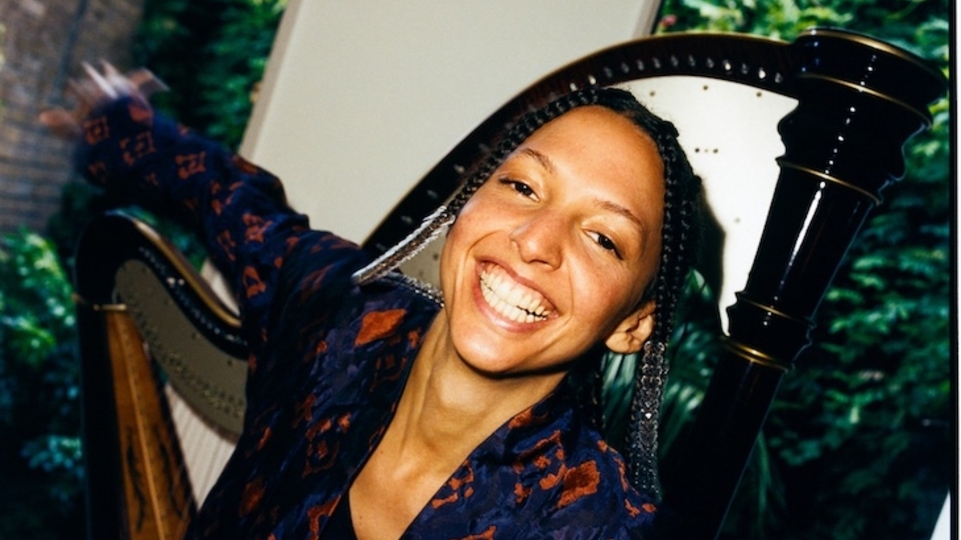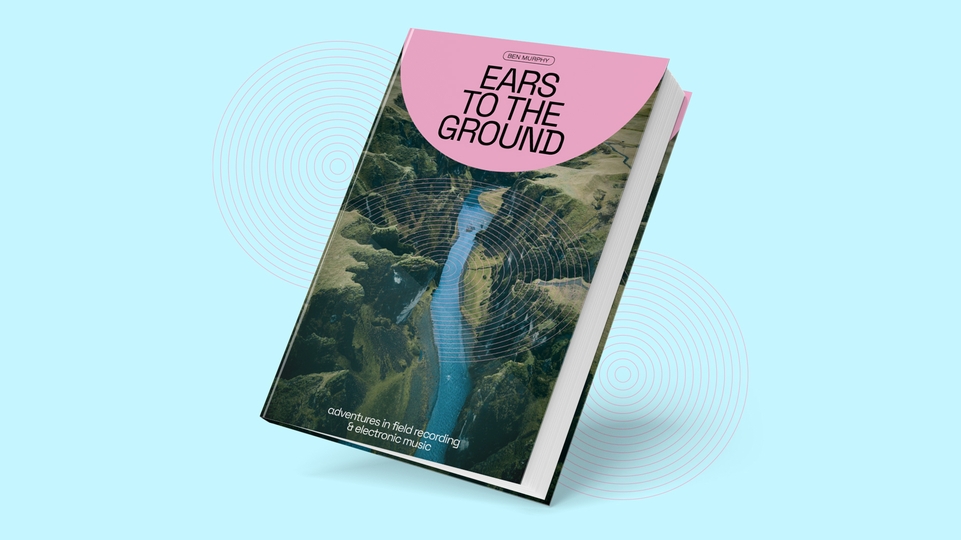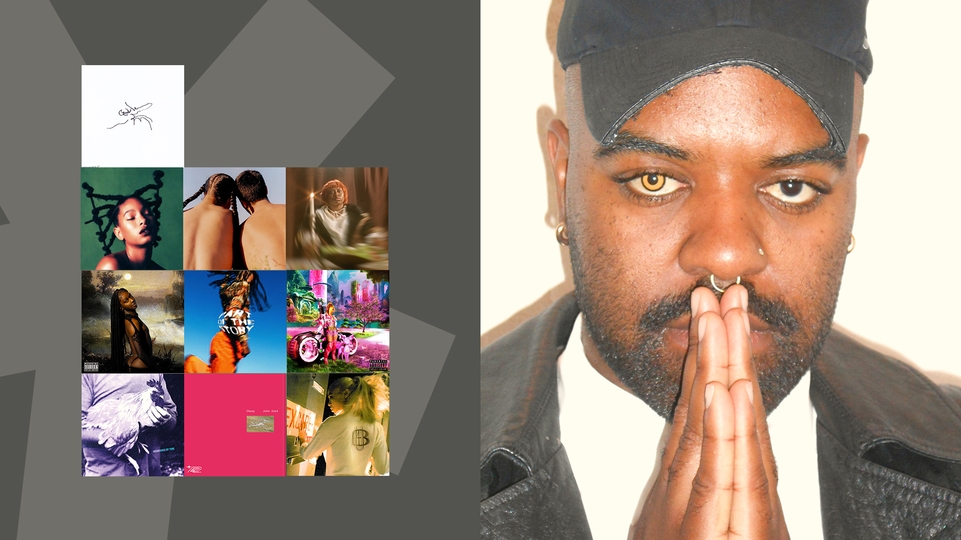
Pauline Anna Strom: matters of time
In her catalogue of music released throughout the ‘80s, the blind synthesist and composer Pauline Anna Strom built vivid sonic worlds that transcended time. After three decades away from music, Brooklyn label RVNG Intl is about to release Strom’s final album, ‘Angel Tears In Sunlight’, two months after her untimely passing at the end of last year. Eoin Murray reflects on the life and legacy of a unique, pioneering artist
Living through a pandemic has distorted our already fragile grasp of time. Days turn into weeks at a glacial pace, only for months to evaporate in an instant. How are we supposed to deal with it all? One option would be to rethink how we interact with time entirely, and look towards something more transcendent and liberating. It’s a strange idea, sure, but it’s one that blind synthesist and composer Pauline Anna Strom made a compelling case for throughout her life. As Brooklyn label RVNG Intl. marks the posthumous release of the Bay Area-based artist’s first new music in over 30 years, it feels timely to reflect on the life and legacy of this unique artist, who sadly passed away in December 2020 at the age of 74.
Strom, (Paula, to those who knew her), often spoke of experiencing time differently to others. She described feeling out of step with the present, considering herself to be more in tune with “the depths of the ancient past and the far-flung reaches of an untapped universal future”. Speaking in a rare, early interview with music magazine EUROCK in 1986, she said: “I sometimes feel I have been placed in this chaotic, confused present to draw into it the elements from these opposite realms in order that my interpretations of them through sound and music may in some sense benefit our as yet largely incompetent and immature population.”
Through her three albums and four cassette tapes, released in limited edition runs between ’82 and ’88, Strom channelled her understanding of reincarnation. With an intuitive, self-taught compositional process — one she maintained was helped, never hindered, by her blindness — Strom mapped out uncanny sonic spaces, plucked from vivid scenes she saw in her mind. These inner worlds feel as futuristic as they do primordial, as universal as they are personal.
Strom’s music has a magisterial quality to it, stretching beyond the parameters of the Californian New Age movement she lived alongside. While New Age honed in on escapism, Strom’s music sought to elevate the listener with its rich, purposeful imagery. She would go so far as to describe the hype and commercialisation around New Age as “bullshit propaganda”, with a business structure “as corrupt, political, and superficial as elsewhere”.
Strom recorded all of her music in her apartment in San Francisco's Tenderloin neighbourhood, mostly using the Yamaha DX7, a Prophet 10, two CS1x keyboards, an E-mu Emulator, and a Tascam four-track recorder. Her stunning debut, ‘Trans-Millenia Consort’ (a moniker she also used), laid out her ethos in its liner notes: “This to me is a personal declaration that I have been in previous lives, that I am in this life, and that I shall in future lives be a musical consort to time”.
The album beams with melodic motifs, swirling arpeggios and twinkling percussion. From the lapping sounds of water — recorded by Strom splashing one hand in a bowl, while holding her microphone in the other hand — in opener ‘Emerald Pool’ to the cascading closing chirps of ‘Gossamer Silk’, the album is authentically realised, full of emotion and colour.
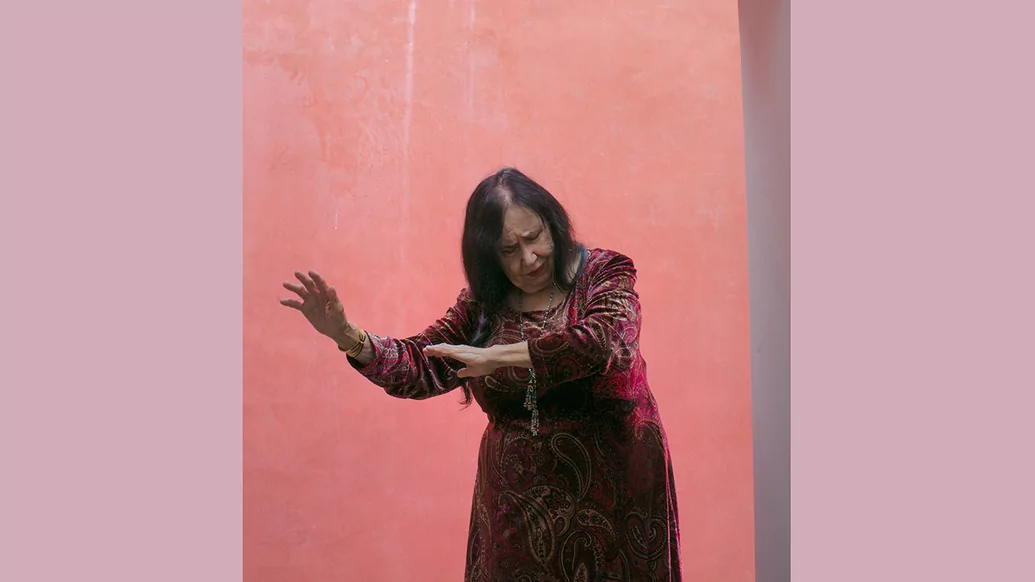
Building Sounds
In 1984’s ‘Spectre’, Strom’s music takes a darker tone. Inspired by her listening to audiobooks of gothic fiction by authors like Anne Rice, and a fascination with “mysterious vampire legends”, the album fuses those themes with ideas of “modern violence and desolateness”, conjuring its atmosphere with what she described as “a whispered gloss of steel, from cold arctic temperatures and [her own] elusive spacious voices”.
By 1988, when her album ‘Aquatic Realms’ was released, Strom had largely stopped using recorded samples in her music, opting instead to recreate those organic sounds by herself, using synthesizers. That cassette release, and every trickling, water-like sound therein, was made using her Prophet 10. Speaking to Fact Magazine in 2017, she explained that when she placed her fingers on the keyboard after creating these sounds, she could “feel the texture of the water”. As she told the experimental pop artist Caroline Polachek in conversation for Listen To This that same year, “I can get lost in creating sounds. Equally intriguing is getting lost in the sounds.”
Describing the track ‘Rain On Ancient Quays’ in the album’s liner notes, she wrote that she “imagined the harbor at Alexandria, centuries and centuries ago, the way the water would lap against the shore Like at Lake Pontchartrain outside New Orleans, near where I grew up”. Raised in Louisiana and Kentucky, Strom was brought up Catholic. She told Red Bull Music Academy that the ceremony, mystery and music of Catholicism influenced the emotion of her sound, and started her on a life-long spiritual journey. She eventually became a reiki master and healer, and brought elements of Buddhism and “everything I’ve ever explored” into her own spiritual system.
As well as church music, Strom spent her youth listening to classical composers like Bach, Beethoven and Chopin, and dabbled in playing organ. It was only after moving to San Francisco in 1968 with her then husband (a G.I. who was stationed nearby) that she fell in love with electronic music, through Klaus Shulz, Tangerine Dream, Kraftwerk and Vangelis. She would occasionally tune into the ‘Music from the Hearts of Space’ radio show on KPFA in Berkeley, and it wasn’t long before she assembled her own synthesizer set-up.


Time Away
Shortly after the release of ‘Aquatic Realms’ in ’88, Strom fell into a period of financial hardship, sold all her equipment, and stopped making music. A naturally reclusive person, Strom led a private, independent life. She developed her healing practices and her releases faded into obscurity. But music like hers doesn’t just disappear — it lingers in the ether, waiting to be found.
Enter RVNG Intl. In the mid-to-late noughties, obscure music forums like Mutant Sounds, 433, and Waxidermy were hotbeds of curiosity and discovery; pre-streaming, pre-YouTube spaces where nerdy music fans and collectors could share and delight in sounds that would otherwise have faded into forgotten corners of history. It was there that Matt Werth, RVNG’s founder, stumbled on ‘Trans-Millenia Consort’, and became fully entranced. “There were so many qualities to it,” he tells DJ Mag over a call. “It just felt intimate. It felt mystical. It felt, I don’t know, like it just really was something different. And I wanted to go deeper.”
Among the reams of comments left on Waxidermy, from awe-struck fans in search of Strom’s coveted records and tapes, one message stood out. Someone wrote that they’d recently spoken with Strom on the phone. Pauline was alive and kicking, it read, still living in her San Francisco apartment with her beloved Cyclura Iguana called Little Soulstice. “She was amazed and grateful to hear that her music still has some fans after all these years,” the comment continued. “She is a warm, thoughtful and positive person.”
This was in 2008. Werth reached out to the commenter, who in turn put him in touch with Strom, “and that began the long story of Paula”. Gradually, Werth and Strom established a friendship and rapport. Werth’s initial eagerness to help Strom re-release her music was brushed off, and a relationship built on trust and semi-regular check-ins over the phone developed, embellished with occasional trips to her home. “I never wanted to pressure her into something she didn’t want to do,” says Werth. “I would just keep in touch. I developed a real sense of care and interest in her life.”
It was only several years later, during one of those friendly check-ins, that things flipped, and Strom asked Werth if he was ready to work on a release. A person in command of her own story, Strom knew exactly when to revisit the transcendental music she had made three decades before: on her own terms, and in her own time.
“I don’t think it was a change of heart, I just think that something was telling her that it was time,” Werth explains. “Paula listened to herself, first and foremost. She was greatly in tune with her own world, but of course, also in touch with something far beyond her world and our world. I think there were divining forces at play within her throughout her life. I’m not saying that some cosmic voice called her and said ‘It’s time’, but I do like to think that she made very intentional decisions about everything she did.”
With the help of RVNG affiliate, synthesist and composer JAB aka John Also Bennett, Werth began to assemble ‘Trans-Millenia Music’, a compilation album released in 2017 comprising 13 tracks from Strom’s catalogue. Arranged non-chronologically, the collection captures the finest qualities of Strom’s music: the sense of space, sublime compositions, and mystical atmospheres. They even managed to get Karma Moffett, the fine artist and musician behind the mysterious eyeball on the cover of Strom’s debut, to create the artwork: a vast sunset horizon, where new worlds hover and spiral above a golden ocean.

Rediscovery
The release of ‘Trans-Millenia Music’ brought renewed interest in and long overdue acclaim for Strom, which surprised and touched her in equal measure. For the first time, her music was widely available: given a legitimate reach that she could feel genuinely rewarded by, unlike the many unlicensed bootlegs of her work that were distributed at huge cost over the years. As Werth explains, however, Strom wasn’t interested in that release being her only statement made in 30 years. She wanted to make music again.
With the help of RVNG and “some very kind synthesizer makers”, Strom was set up with a new workstation. “She did not want to go back to the great analog synths that she had,” Werth explains. “The ones that so many new modern-day synthesists would fetishize and create music on. I guess what she had learned from that period was just that they were temperamental instruments, and she just wanted a stable workstation to create from.”
And create she did. After three decades of silence, music flowed out of Strom like sunlight bursting through a cloud. “It arrived as a tidal wave. I think she sent 70 pieces to begin with,” says Werth. JAB, whose job it was to edit Strom’s long synth jams into track-size pieces, set about shaping hours of new material into something that resembled an album: a process that began in early 2020 and manifested during lockdown.
“It was just totally unfiltered, intuitive Paula flowing out,” remembers JAB, who speaks to DJ Mag from his home in New York, alongside the composer and filmmaker Christina Vantzou. (Between 2016 and 2018, Vantzou wrote and published Strom’s Wikipedia page.) “Christina pointed out that it really was just this uninterrupted flow of energy. I honestly couldn’t believe it. At the same time, it’s kind of beautiful the way that she just sent it,” he continues. “She was like, ‘this is it. You guys figure it out’. She put her energy and herself out there, and she sent it to us and gave us a lot of trust.”
JAB only ever had a few interactions with Strom, which were limited to a couple of phone conversations — “I wish more people could hear her speak because it was just so calming, hearing her talk” — but he developed an intimate connection with her through her music. “I feel like I know a part of her,” he says. “I just listened to so much of her music for so many hours.” Despite being recorded on new equipment, Strom’s new music was “still totally Paula” says JAB. “It’s coming from her inner vision... It feels so personal yet expansive and in touch with cosmos at the same time. You kind of get a sense of what it’s like inside her head when you listen to her music.”
It was Werth who kept Strom up to speed on how her new album was coming together: frequently spending nights in conversation with her and playing the edited pieces to her down the phone, which she would recognise and play through her own recording system; relaying him with specific IDs and stories behind the inspirations for each.
“It was a joyous time to be able to spend these intimate moments with her new music,” says Werth. “And to be the first to really hear it, you know, it just felt like such an honour... I will never forget the time that we spent putting this album together. It was just so special and comforting to have that consistency and that companion through those nights.”
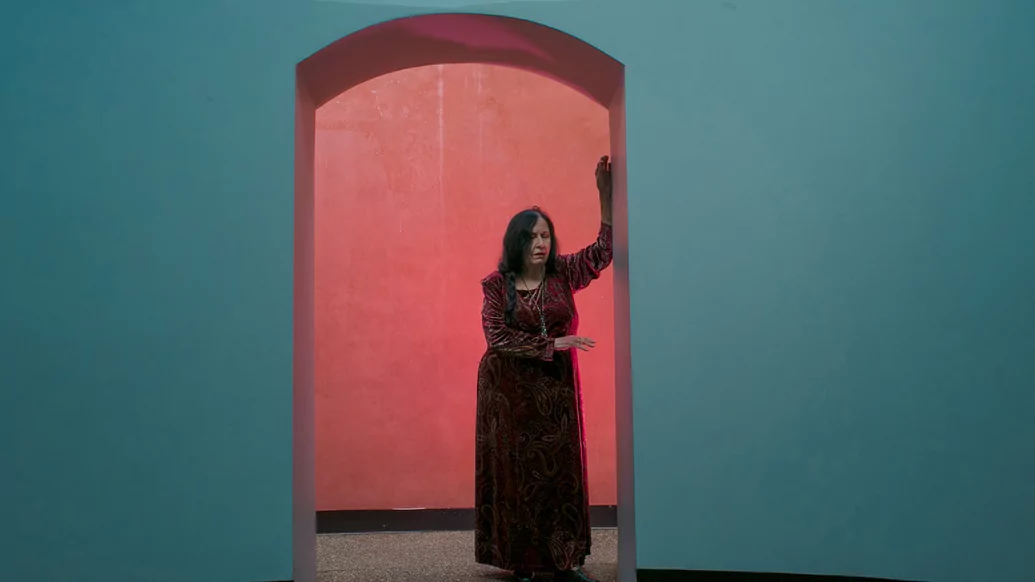

Angel Tears In Sunlight
The album is ‘Angel Tears In Sunlight’, a nine-track collection that feels as bold, brilliant and beguiling as anything Strom ever recorded. Tracks like opener ‘Tropical Convergence’ and ‘Equatorial Sunrise’ are celestial melodic journeys, while the organic sounds she creates on ‘Tropical Rainforest’ are nothing short of magical. ‘The Pulsation’ dances like an ancient tribal rhythm transmitted into the future, while ‘Small Reptiles on the Forest Floor’ sounds like an ode to her two “dinosaurs”, Little Soulstice and her smaller, blue-skinned Cyclura companion, Miss Huff, one of whom even features in the video for the kaleidoscopic lead single, ‘Marking Time’.
‘Angel Tears in Sunlight’ is also an album that confronts life and loss, and the evolution of darkness into light. As she composed the album, Strom was grappling with the loss of a dear friend, John Jennings, who had worked in her building. Her processing of that loss informed the music she created, and the album is dedicated to his memory, “a man of integrity, honor, and loyalty. Patient, understanding, and free of judgement. I’ll cherish and treasure our friendship — past, present, and future — through eternity. Until we renew our friendship in another lifetime to come.”
“Sunlight represents what we’re coming into,” Strom said of the album. “You bring the sadness with you, but you’re also prepared for the blessing of the new.”
The album’s theme developed a new, tragic poignancy when, in mid-December, Strom passed away unexpectedly. Her death is a devastating loss, felt by many. She left behind an inspiring final statement, one she had been excited to share with the world: a promise of renewed life and companionship that stretches past our understanding of earthly life and time.
“I feel like there was a time in my life where I was really longing for some examples out there of people who were working without conservatory training; who were working more intuitively, thinking about ancient cultures, all these specific things that she does with her work,” says Vantzou. “I felt like she was a guiding light for anyone out there that is finding themselves composing music in an intuitive way. I felt like that was such an inspiration to me personally, and I think it's a very universal kind of reach.”
“Paula intentionally led a private life, a mysterious life,” says Werth. “And don’t we all need a little bit more mystery in life? Not in an opaque, hidden, secret way. But more in the sense that mystery conjures wonder... Paula’s music creates such a great opportunity to experience this mystery... I think together we can all kind of imagine the worlds that she was imagining, and experience some of what she was experiencing, at least through her presentation of sound.”
Strom’s music didn’t so much defy our concept of time, as it did wield and reclaim it. There’s so much wonder to be found in those worlds, and through times of hardship, there’s solace and light, too. Strom’s control over her creative vision and her keen sense of intuition is what will ensure her music will live on, and continue to inspire for years to come. Enchanting, mysterious, and completely timeless.
'Angel Tears In Sunlight' is available via RVNG Intl. from 19th February. A portion of the proceeds from the album will go to the International Iguana Foundation.
Photos: Aubrey Trinnaman


